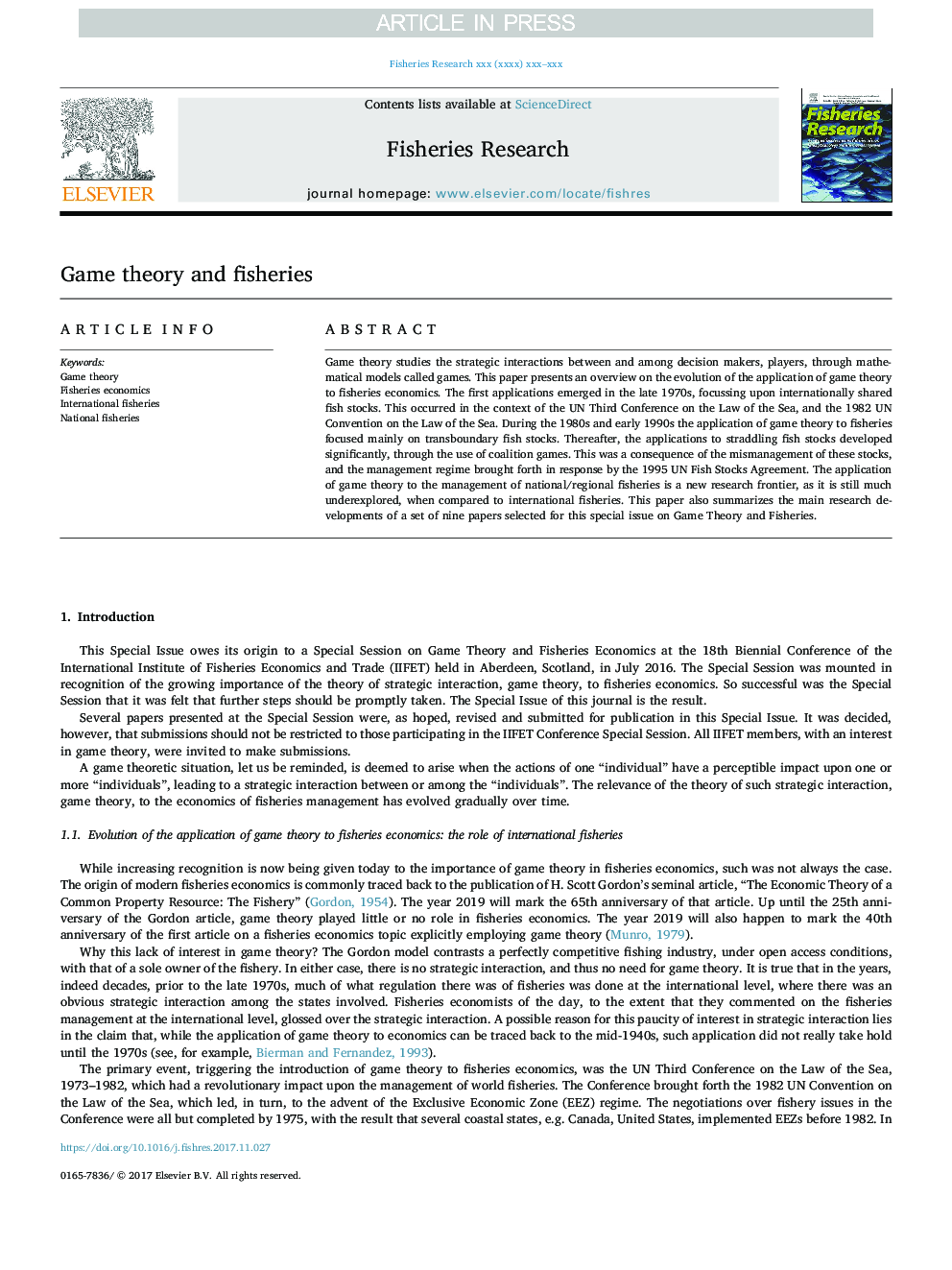| Article ID | Journal | Published Year | Pages | File Type |
|---|---|---|---|---|
| 8885409 | Fisheries Research | 2018 | 5 Pages |
Abstract
Game theory studies the strategic interactions between and among decision makers, players, through mathematical models called games. This paper presents an overview on the evolution of the application of game theory to fisheries economics. The first applications emerged in the late 1970s, focussing upon internationally shared fish stocks. This occurred in the context of the UN Third Conference on the Law of the Sea, and the 1982 UN Convention on the Law of the Sea. During the 1980s and early 1990s the application of game theory to fisheries focused mainly on transboundary fish stocks. Thereafter, the applications to straddling fish stocks developed significantly, through the use of coalition games. This was a consequence of the mismanagement of these stocks, and the management regime brought forth in response by the 1995 UN Fish Stocks Agreement. The application of game theory to the management of national/regional fisheries is a new research frontier, as it is still much underexplored, when compared to international fisheries. This paper also summarizes the main research developments of a set of nine papers selected for this special issue on Game Theory and Fisheries.
Keywords
Related Topics
Life Sciences
Agricultural and Biological Sciences
Aquatic Science
Authors
Lone Grønbæk, Marko Lindroos, Gordon Munro, Pedro Pintassilgo,
